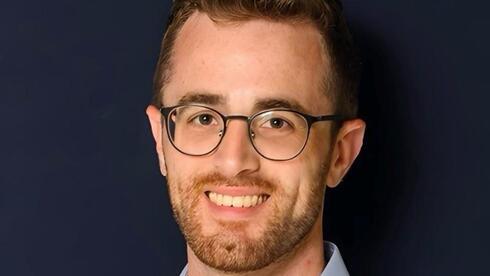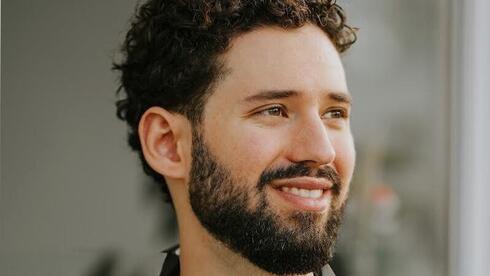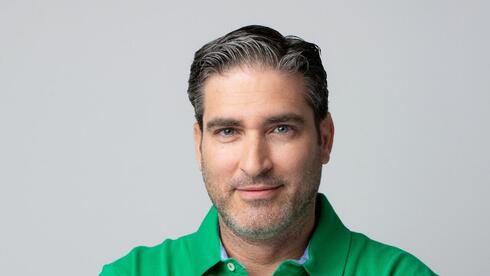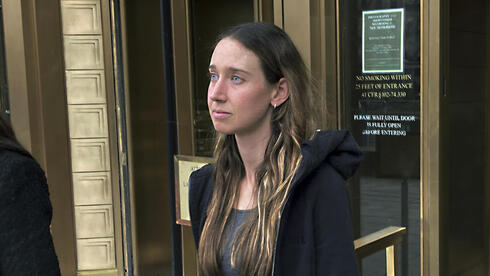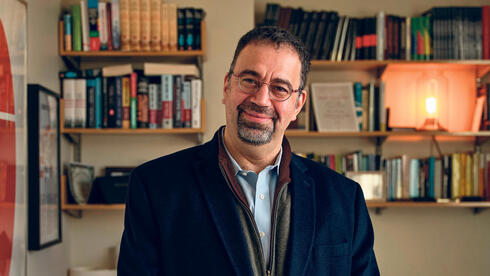
Israel-Greece Conference
"Customers want unique experiences like river and mountain tours"
Sofia Zacharaki, Greece’s Deputy Minister of Tourism, was speaking at the Future of Tourism Panel held as part of the Calcalist Israel-Greece Conference in collaboration with Aroundtown and Brown Hotels. Also participating in the panel were Charis Theochariss, Greek MP and former Minister of Tourism, Maria Theofanopoulou, CEO of Greek Travel Pages, and Grigoris Tasios, President of the Hellenic Federation of Hoteliers in Greece
The Future of Tourism Panel
(טל אזולאי)
The Future of Tourism Panel held as part of the Calcalist Israel-Greece Conference in collaboration with Aroundtown and Brown Hotels, chaired by Cobi Bitton of the Israel-Greece Chamber of Commerce, was dedicated to innovations in tourism in Greece and focused on the issues that the tourism industry is dealing with as the pandemic crisis seemingly nears its end. The panel highlighted the hoteliers in Greece, and centered on sustainability considerations, digital transformation as well as expanding the field beyond the experiences of relaxing by the pool to other types of tourism with higher added value. Participating in the panel were: Sofia Zacharaki, Greece’s Deputy Minister of Tourism, Charis Theochariss, Greek Member of Parliament and former Minister of Tourism, Maria Theofanopoulou, CEO of Greek Travel Pages, and Grigoris Tasios, President of the Hellenic Hotel Association of Greece.
"At the heart of our effort is diversity, quality, and sustainability. Customers want unique experiences, not only the sun and the sea, two things that are not lacking for both Israel and Greece, but also other activities - like streams and mountains - and Israelis were the first to discover this part of Greece," said Sofia Zacharaki, Greece’s Deputy Minister of Tourism. "My grandfather had a hotel outside the classic tourist areas and there were always a lot of Israelis. Now we want to develop diving, mountaineering, wine and culinary tourism and all kinds of experiences. Huge sums will be directed to improving infrastructure in the alternative experiences. We see this as our strategy in the field of tourism for the next decade. Another strategic interest for us is education in the tourism industry. What we saw in 2020 is that in addition to the billions we lost in the industry, we also lost many jobs. It is important for us to bring the young people back to the field of tourism and this is a significant part of the discussion also in the World Tourism Organization, building incentives to work in the field and also building more stable frameworks. The EU is helping us renew curricula and investing in tourism schools and we have more than ten of them. The plan is for 20,000 unemployed young people to receive new skills, including digital, which is very much needed today."
Subsequently, the discussion shifted to the issue of the sustainability of the tourism industry when Bitton asked Charis Theochariss, a Greek Member of Parliament and former Minister of Tourism, to explain the implications of the connection between tourism and sustainability.
You attract a lot of tourists but in some places there are already complaints that it changes the lives of the locals too much.
"This is a real issue and it's happening all over the world, there are places that no longer want tourists, there are places that ban the construction of new hotels. We all know the struggle of Barcelona and Airbnb. In Greece there is no movement that opposes tourism, but we have infrastructure issues and challenges managing the flow of tourists. We have not yet reached the point where the local population expresses opposition to tourists. This does not mean that we are not close to there and that there are no challenges in managing the field. When it comes to sustainability, well, that’s the name of the game today in tourism and everyone is talking about it. It started even before the pandemic. The focus has changed slightly, but the idea is still long-term relationships with investors in Greece. Environmentally conscious tourism is not a simple issue, but it can be tackled. I am working with the Saudi Minister of Tourism to establish an international council in the field. We are looking at the numbers and there are a lot of efforts in the field."
Regarding the digital transformation, how does the industry integrate the technological developments?
"In 2030 we will experience what will be invented in 2025 which means we do not yet know yet what exactly will happen," Theofanopoulou said. "The tourism industry has been digitized but mainly in the airlines and large hotel chains, but in Greece a large part of the tourism industry is still small family businesses that have not undergone the digital transformation. This is a major industry in Greece that accounts for more than 20% of our GDP. We are seeing accelerated and forced digitization in the industry since the pandemic because it was simply no longer possible to reach the customer in the old analog form. Recent research shows that we are still in the early stages of the transformation as there are many small hotels that do not have their own website and they completely trust Booking.com. We need to look for the smart organizations - provide them with open information and the government needs to provide us with the resources where it will be possible to look for information and tourist habits. We need to develop digital skills, educate business owners, and produce smart targets that will also have control over pollutant emissions and energy consumption. When it comes to 5G networks - the government will cover 90% of the area in the advanced networks and this will also advance the process."
The plan you describe will require you to develop technologies and open up to the travel tech industry and start-ups. This is where Israel can play a significant role.
Theofanopoulou: "We already have a local industry of tourism start-ups and innovation initiatives that I personally coordinate. There is also a vibrant fintech community and we are trying to develop future payment methods. Along with the funding we received from the EU Investment Fund and venture capitalists who came to Greece, as well as angel investors, we have more options and we will be happy to see the cooperation between the Greek ecosystem and the Israeli one.
How do you adapt to the needs of the new and young tourists? There have been no significant changes in the number of rooms and local hotels in Greece in recent years.
Tasios: "Greece offers a modern hotel service, but we are attentive to world trends and we are always happy to see innovation in the field."




